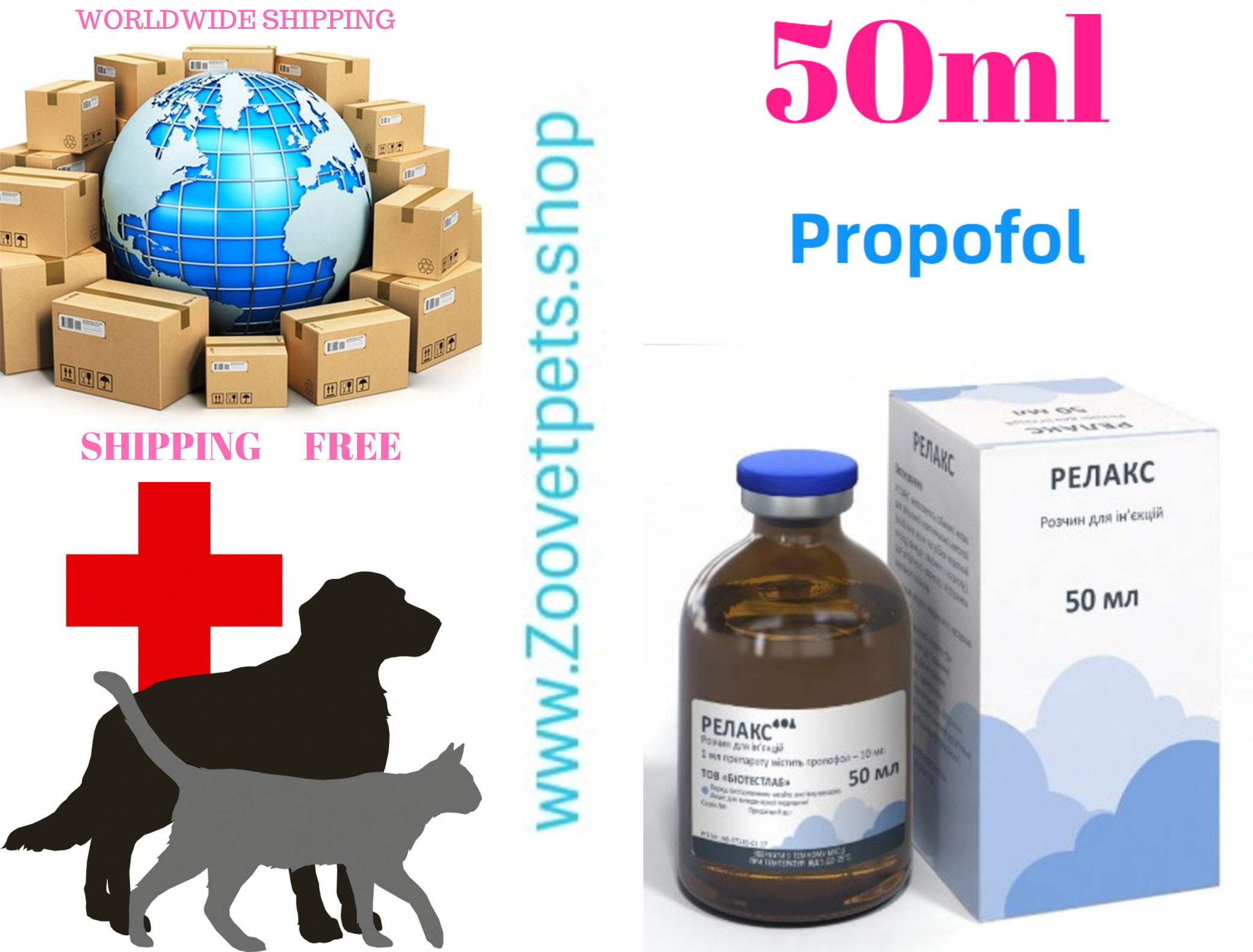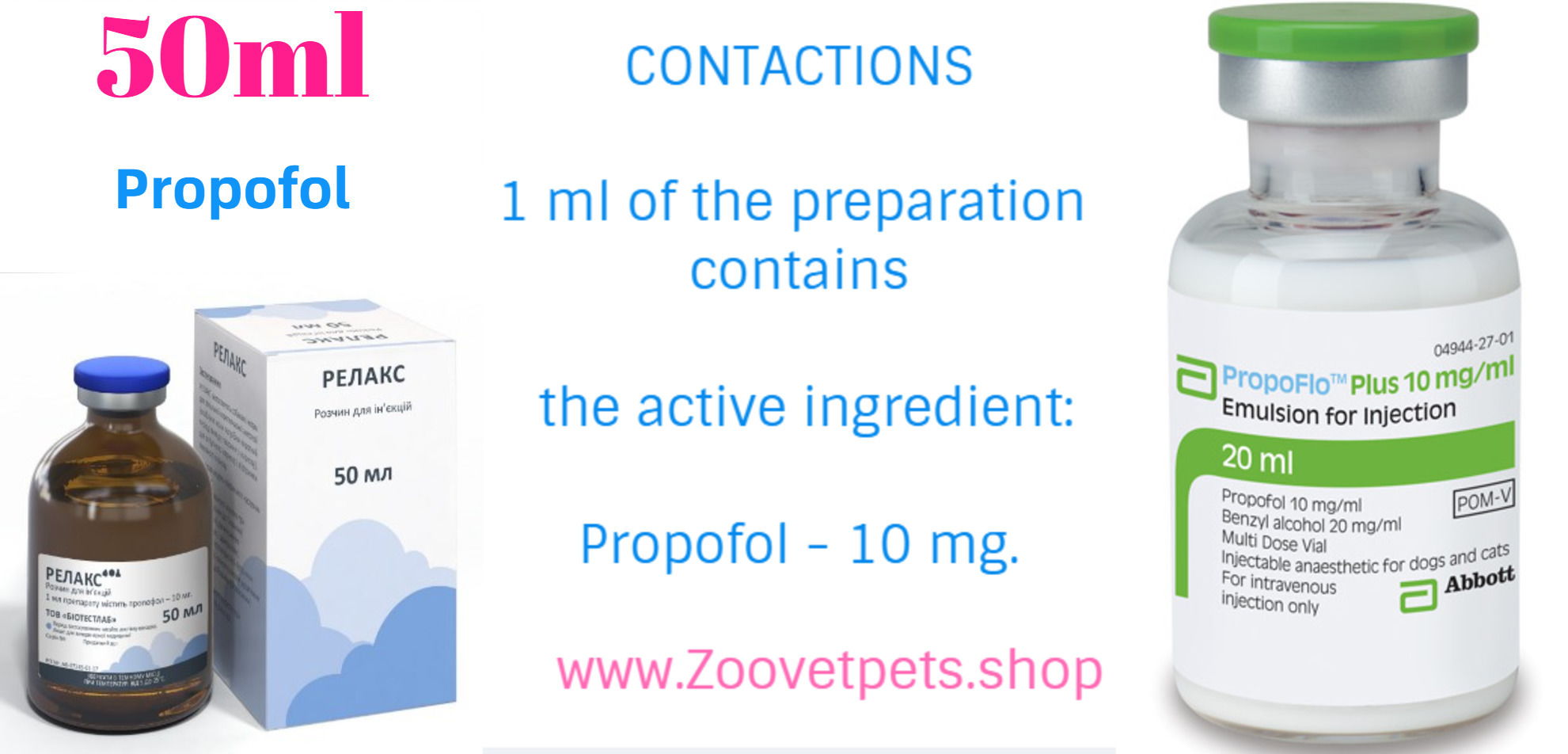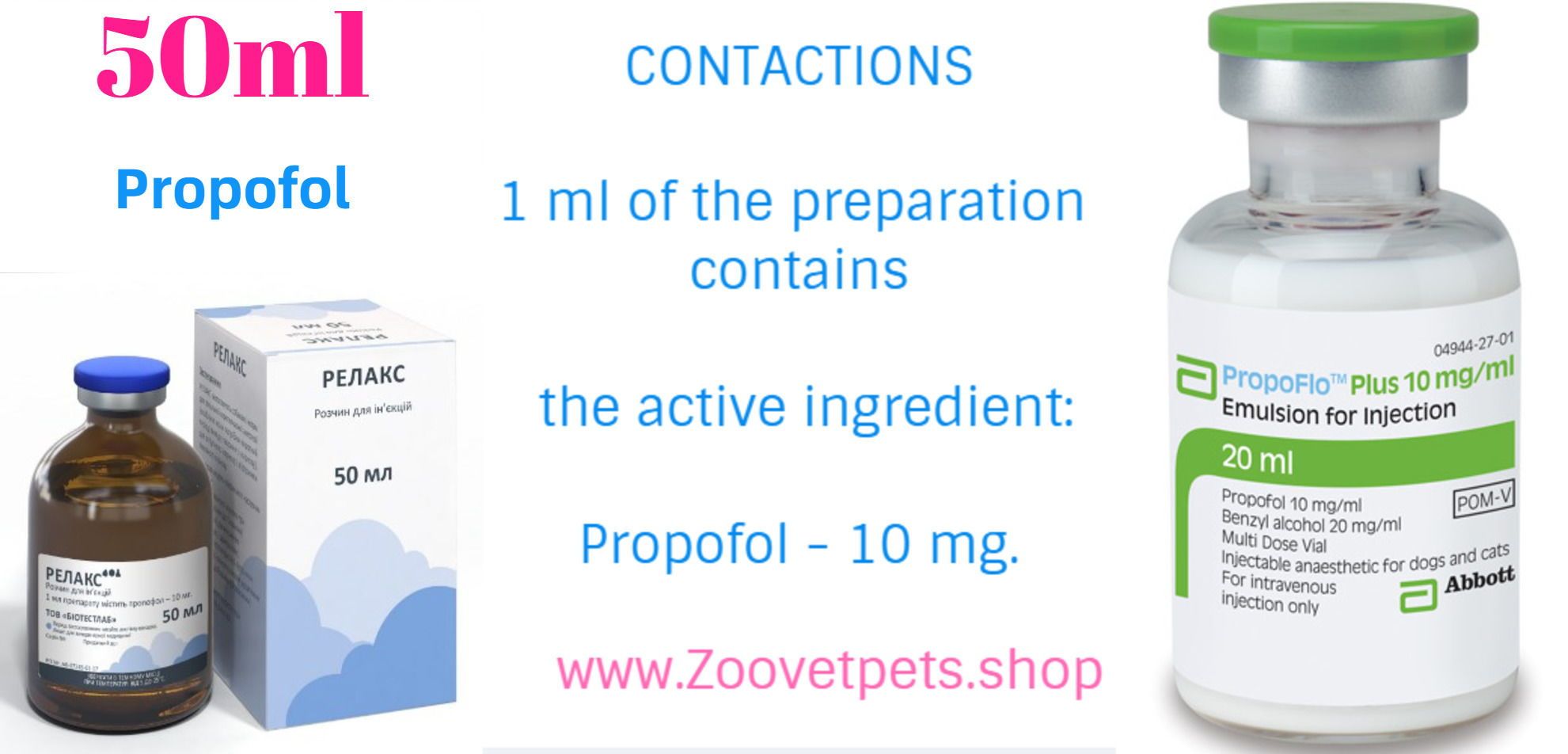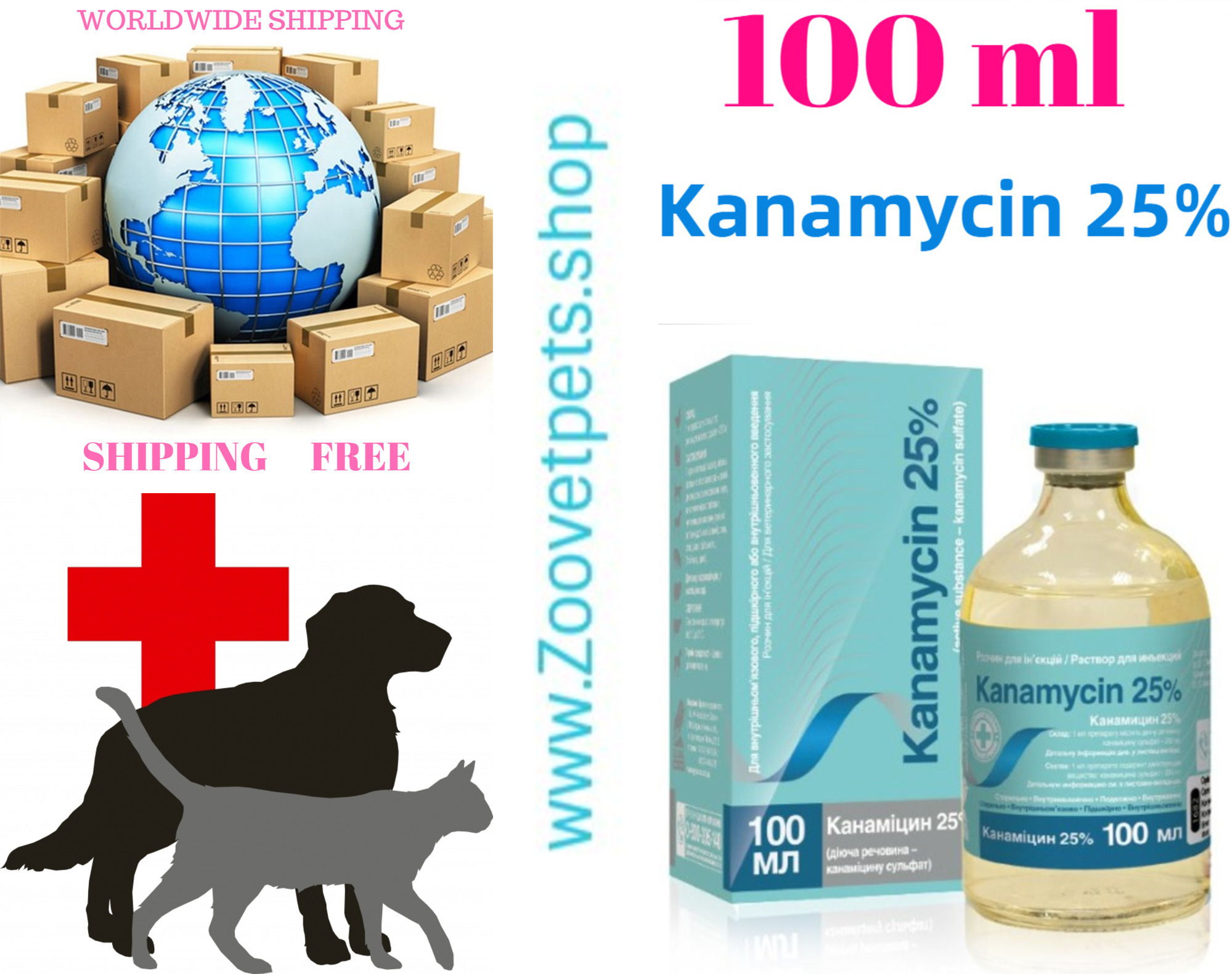Description
CONTACTIONS
1 ml of the preparation contains
the active ingredient:
Propofol – 10 mg.
PHARMACOLOGICAL PROPERTIES
Refers to the group of preparations for non-inhalation anaesthesia, a sedative of ultra-short effect.
Propofol – the active substance of the drug – is characterized by high lipophilicity and easily penetrates through the hematoencephalic barrier, causing a rapid short-term anesthetic effect with minimal excitation stage manifestations.
Within 30-60 seconds, medication sleep occurs, the development of which is due to the nonspecific effect of propofol on the ionic tubules of the central nervous system membrane neurons. Anesthetic effect after a single administration of the drug in the recommended dose is up to 8 min.
With the support of anesthesia in the usual mode there is no significant cumulation of the drug.
After intravenous administration, propofol binds to plasma proteins (98%), is metabolized mainly in the liver by conjugation with the formation of inactive metabolites, which are excreted mainly from the urine (approx. 88%).
The half-life period in the initial rapid phase of propofol distribution is 1-8 minutes, in the slow phase of distribution – 30-70 minutes, and in the elimination phase from 4 to 23.5 hours.
Propofol is used together with atropine, glycopyrolate, acepromazine, xylazine, ketamine, oxymorphone, halothane and isoflurane. Pharmacological incompatibility is not observed.
APPLICATION
Use dogs and cats for general short-term anaesthesia (especially when a short period of anesthesia is needed), for introductory anaesthesia and to maintain basic anaesthesia. The drug can be used for introductory anesthesia in C-section in bitches.
Animals are injected in the following cases: for short anesthesia in case of short-term (up to 5 minutes) surgical and diagnostic procedures – once, for introductory anesthesia and support of the main anesthesia by additional injections, for introductory anesthesia in inhalation anesthesia.
DOSE
To achieve short-term anesthesia, the drug is administered intravenously in a dose designed for animal body weight, once for 10-60 seconds until anesthesia is obtained.
The recommended doses per animal of the appropriate weight are presented in Table 1. In practice, to achieve adequate anesthesia, the dose should be adjusted based on the animal’s response to the drug.
TABLE 1. DOSAGE OF RELAX
| ANIMAL SPECIES | TYPE OF ANESTHESIA | THE DOSE OF RELAX BASED ON KG OF ANIMAL BODY WEIGHT |
| Dogs | Short-term general anesthesia: | |
| without sedation | 0.65 ml (6.5 mg propofol) | |
| with sedation | 0.4 ml (4 mg propofol) | |
| Cats | Short-term general anesthesia: | |
| without sedation | 0.8 ml (8 mg propofol) | |
| with sedation | 0.6 ml (6 mg propofol) |
For premedication, the following doses are usually used: acepromazine, oxymorphone, xylazine, according to the dosage given in Table 2. Other sedatives, sedatives, opioids and/or α-2-agonists may be used as premedication.
TABLE 2. DOSAGE OF DRUGS FOR SEDATION
| PREMEDICATION | DOSE (MG / KG) * | ROUTE OF ADMINISTRATION |
| Acepromazine | 0,060 | Intramuscularly, subcutaneously, intravenously |
| Oxymorphone | 0,090 | Intramuscularly, subcutaneously, intravenously |
| Xylazine | 0.33 | Intramuscularly, subcutaneously |
The doses of these preparations are lower than the normalized doses of the leaflets (instructions) for their use as monotherapies.
General anesthesia lasting up to 30 minutes is provided by induction of anesthesia with the preparation and further bolus injection of additional doses of the preparation, in total up to 2.4 ml/kg of body weight (24 mg/kg of propofol).
Before inhalation anesthesia, the induction anesthesia preparation is used in the same doses as for short-term anesthesia, and the primary concentration of anesthetic gas should be higher when using the preparation than when using barbiturates as an induction anesthetic.
OVERDOSE (SYMPTOMS, EMERGENCY MEASURES, ANTIDOTES)
An overdose of the drug can cause short-term apnea, low blood pressure, bradycardia. In these cases, resort to artificial ventilation of the lungs, prescribe means of symptomatic and pathogenetic therapy.
CONTRAINDICATIONS
Hypersensitivity of the animal to the components of the drug (including anamnesis), severe decompensated diseases of the cardiovascular and respiratory systems. should not be used for anesthesia in pregnant females (if it is planned to preserve the fetus). The drug may be used for induction anaesthesia when performing C-section in bitches.
It is necessary to use the drug with caution in exhausted animals, in hypovolemia, kidney, liver and lung diseases.
Do not use it on productive animals!
SIDE EFFECT
When used according to the recommendations, the inset sheet is usually well tolerated by the animals. Introduction of the drug, as well as other drugs for general anesthesia, may cause short-term apnea in the animal, lowering blood pressure, bradycardia. In these cases, they resort to artificial ventilation of the lungs, prescribe means of symptomatic and pathogenetic therapy.
CAVEATS
Do not freeze!
Do not mix the drug with other drugs in one syringe!
The drug is compatible with drugs that are used for premedication, with myorelaxants, inhalation anesthetics and analgesics; undesirable pharmacodynamic interactions are not indicated.
FORM OF GRANDING
Vials made of glass or polymeric materials with 50 ml. volume.
Shelf life -2 years.
After the first selection from the bottle – 28 days, provided that it is stored in a dark place at temperatures from 40-70F (5 to 25 ° C).
STORAGE CONDITIONS
In a dark, inaccessible place for children at temperatures between 40-70F (5 to 25 ° C).









Reviews
There are no reviews yet.